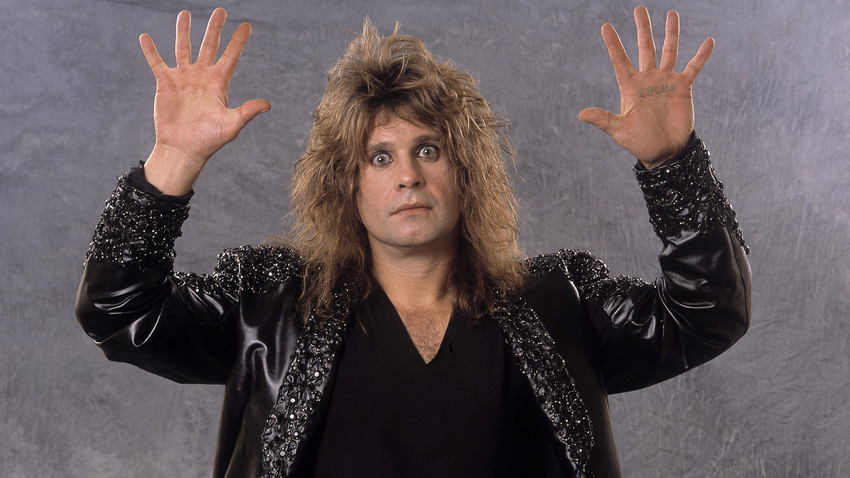The heavy metal world, and indeed the entire music universe, came to a stunned, sorrowful halt on Tuesday, July 22, 2025, as news broke that Ozzy Osbourne, the Prince of Darkness, the Godfather of Heavy Metal, and an icon whose influence transcended genre, had passed away peacefully at the age of 76. His passing, while anticipated after a prolonged battle with Parkinson’s disease and various health setbacks, left millions of fans around the globe choked up, grappling with the profound void left by a legend whose life was a series of unforgettable, boundary-pushing moments.

Ozzy’s career was a seismic force, a lifetime performance that the whole world will remember forever. It began in the industrial heartland of Birmingham, England, where he fronted Black Sabbath, a band that didn’t just play rock music; they invented heavy metal. With Sabbath, Ozzy’s unique, almost sinister vocal delivery, combined with Tony Iommi’s crushing riffs, Geezer Butler’s apocalyptic lyrics, and Bill Ward’s thunderous drums, forged a sound unlike anything heard before. Albums like Paranoid, Master of Reality, and Sabbath Bloody Sabbath weren’t just records; they were foundational texts for a genre, dark prophecies that resonated with millions of disaffected youth. Moments like the iconic “War Pigs” or the driving madness of “Iron Man” cemented his place as the architect of a new musical darkness.

After a tumultuous departure from Black Sabbath, many might have faded into obscurity. But Ozzy Osbourne was just getting started. His solo career in the 1980s was nothing short of a spectacular resurrection, propelled by his collaboration with guitar virtuoso Randy Rhoads. Albums like Blizzard of Ozz and Diary of a Madman produced instant classics such as “Crazy Train,” “Mr. Crowley,” and “Flying High Again,” proving he was still at the cutting edge of heavy music. His live shows became legendary for their raw energy, theatricality, and sometimes shocking antics, solidifying his image as the unpredictable “Madman.” Later hits like “Mama, I’m Coming Home” showed a tender, more vulnerable side, proving his versatility and emotional depth.
Beyond the music, Ozzy became a cultural phenomenon. The Osbournes, his groundbreaking reality television show in the early 2000s, brought his chaotic, yet endearing, family life into millions of homes, revealing a surprisingly warm and humorous patriarch behind the Prince of Darkness persona. This unprecedented glimpse endeared him to a whole new generation, cementing his status as a beloved pop culture figure.
His later years were marked by significant health challenges, but even in the face of adversity, Ozzy’s spirit remained indomitable. His “final show” at the “Back to the Beginning 2025” concert in Birmingham, just over two weeks before his passing, was a testament to his incredible resilience. Performing seated on a throne, he still commanded the stage, delivering a powerful set that reminded everyone of his enduring power and charisma. His final social media post, a poignant photo of that concert’s poster, was a quiet, dignified farewell.
The news of his death left fans choked up, a profound silence settling over the global rock community. Tributes poured in from every corner of the music world, from former bandmates and collaborators to countless artists who cited him as their primary inspiration. The impact he had on countless lives, both through his music and his larger-than-life persona, is immeasurable. He was inducted into the Rock & Roll Hall of Fame twice—first with Black Sabbath and later, a solo induction—a testament to his unparalleled influence.
Ozzy Osbourne’s greatest moments, from the earth-shattering riffs of Black Sabbath to the raw emotion of his solo ballads and the unfiltered chaos of his reality show, have now become an immortal legacy. He didn’t just create music; he created a subculture, an attitude, and a space for millions who felt like outsiders to belong. Now, the legend is gone forever at the age of 76, but the memory of Ozzy – “The Prince of Darkness” – will live on, his music continuing to fuel rebellion, inspire passion, and remind the world that sometimes, the most profound impact comes from those who dare to be truly, unapologetically themselves.